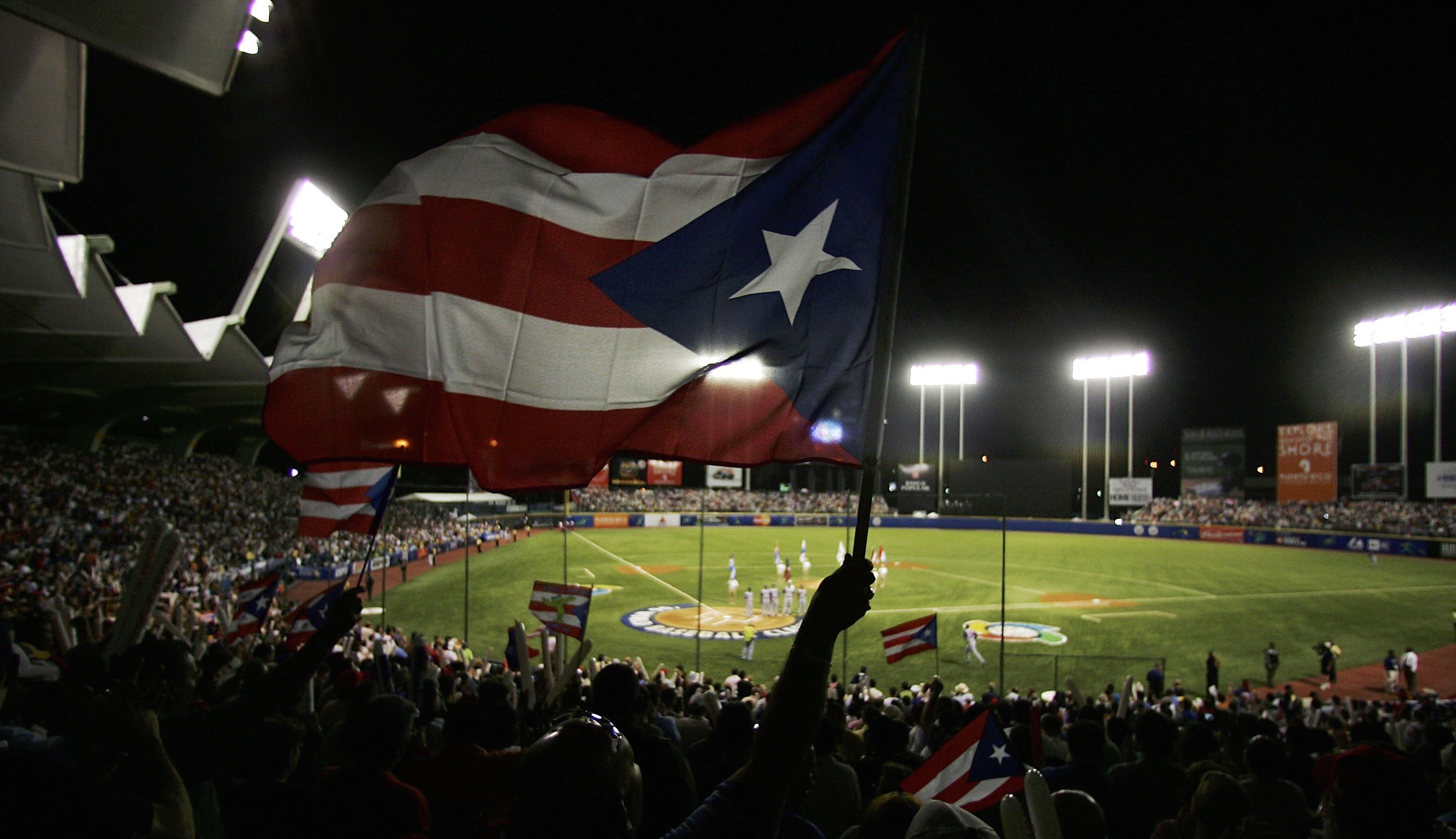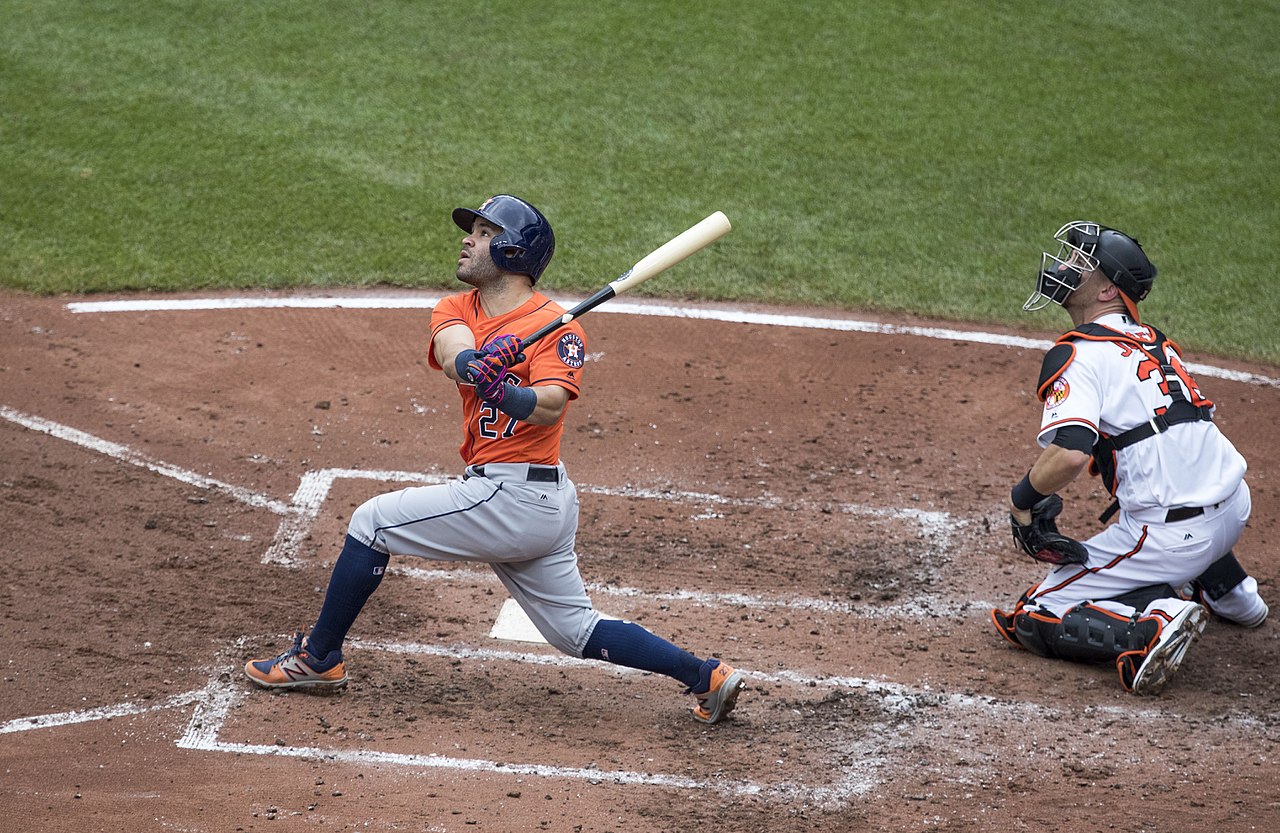Near the top of MLB power rankings all season long, the Houston Astros enter the postseason anchored by the most dynamic middle infield duo in Major League Baseball. Puerto Rico’s own Carlos Correa is the shortstop you’d create in a laboratory. His electric frame gives him power to all fields and the ability to steal hits from the opposition on a nightly basis. Before a torn thumb ligament sidelined him for two months, Correa was a favorite in the MVP race, which is now lead by his double play partner at second base, Jose Altuve, who has notched his fourth straight 200 hit season in 2017. At just 5’6″, the Venezuelan Altuve is the more anomalous half of the duo, one who employs an ingenious “scissoring” technique at the plate, in which he quickly slides his back foot away while making contact, which helps him generate bat speed. Due to his small frame and prodiguous talent, he is baseball’s version of little Mac in Mike Tyson’s Punchout; to put it in context, Altuve is more than a foot shorter than Aaron Judge, the man against which he jockeys for the MVP crown.
Aside from being the middle infield stars of the Astros, both players have something else in common: they’ve launched their Hall of Fame trajectories from the unluckiest countries in the Western Hemisphere. Altuve grew up in the state of Aragua in Venezuela, a country that regularly contends for the global crown of most violent, and one that is in the middle of an inflation crisis–worse than that of the American Great Depression–that has led to a food and basic provisions shortage. Ballplayers and their families are at high risk of kidnappings.

Next to Altuve is Correa; hailing from Puerto Rico, the 23-year-old is whip smart. Had he not been one of the more gifted athletes on the planet (the top pick in one of the first drafts that included Puerto Rican players in the pool of first year draft eligible players), he may have been a part of his country’s “brain drain”, the exodus of the island’s finest minds from a grim economy with sparse opportunity. CNN Money reports that doctors leave the country at a rate of one per day. And that was all before Hurricane Maria rushed through the island, leaving devastation so stark that Donald Trump was forced to suspend The Jones Act, which had stunted the island’s economy for decades. However, that’s only a temporary solution in light of a historic natural disaster; there’s no permanent end coming to the shipping restrictions that have been in place for nearly a hundred years.
What is there to do but flee circumstances like these? As Venezuelans take to the streets to protest President Maduro’s throwback authoritarianism, and Puerto Rican relief efforts from Washington move sluggishly at best, Correa and Altuve and dozens of Puerto Rican and Venezeualan players will take the field on baseball’s national playoffs stage, all while scrawling prayer hands, flags, and #hashtagged keywords on their cleats and hats, in hopes that they will be televised into millions of homes.

Historical moments like Bolivia’s Cochabamba Water War prove the power of channeling attention; awareness is a vital first step in activism and social change. There is a reason that oppressors attempt to control and intimidate the media, knowing attention binds policymakers to get off the fence and apply pressure where it is needed. If we pay attention to history, we see that setting precedents for human rights takes continued pressure; next door from Bolivia, Chileans fought the same fight against water privatization just last year. Peaceful protest is no less important than suffrage, though it is often treated as a second class right. If the peaceful protest is meant to be as effective as possible, it is inhumane to criticize the venue.
The Trump Era has been a stark reminder that the classic liberal democracy and “American exceptionalism” for which America has been trusted and adored has been cancelled, and that agents more potent than awareness are needed to affect social change. It is today more clear to ordinary citizens that the responsibility for the way the world will be is shared amongst them. Whether via causation or correlation, more and more athletes are using the platform that comes with their coveted jobs to do more than sell sneakers and poisonous food.
Urgency is the border over which Latino athletes today more readily trespass.
A recent message from Venezuelan stars Miguel Cabrera and Alcides Escobar, produced by La Vida Baseball, highlights the pithiness of entry level activism while calling for more urgency. Urgency is the border over which Latino athletes today more readily trespass, where they are met with varying levels of scrutiny and pushback depending on the cause. In the video, Cabrera says, “Sending messages right now does not mean anything, because they’re fighting right now, they’re fighting for food, they’re fighting for a better life, they’re fighting for medicine. Somebody gotta step up.” In Cabrera’s tone, you can sense that this isn’t supposed to be him—that he’s stepping out on a limb. Desperate times, desperate measures.
“Fighting for a better life” is sonorous with the American Dream. The well-publicized American success story, lusted over globally, is more digestible than America’s invisible systemic oppression. There has been no better public relations campaign for America than the extreme success stories of nonwhite ballplayers like Sammy Sosa for instance, who could say, in broken English no less, that, “baseball has been very good to me.” The seductiveness and pervasiveness of these success stories tend to overshadow how truly rare they are. The hardworking ballplayer forwards the message that America is a meritocracy, although hard work is not FDIC insured.
That American foreign policy has often had a heavy hand in the circumstances that hobble Latin American countries is fact, but we’ve never seen a Latino player casually state this with the same confidence as, say, an academic or a reporter. Such a player might come off as ungrateful in the eyes of the millions of sports fans who prefer their peas and carrots separated so to speak—what these fans like about sports is the escapism from life, the separation of socio-economic issues from the church of sports. “Stick to sports” becomes a rallying cry for those who are at peace with the world’s current arrangement.

According to stats site FanGraphs, Altuve and Correa combined for a Wins Above Replacement (W.A.R.) tally of nearly 13; plainly put, just those two players count for over a dozen wins above what an average pair might get. If Houston can manage to keep the duo together, they could form the most dynamic middle infield duo in the history of the game. Along with burgeoning star players like Gary Sanchez and Javier Baez, Latino players are slowly inheriting the league, as the demographic tectonics of the United States shift. We’ll see less cartoonish reduction culture to “honor” Latino players and culture, like Mexican nights that consist merely of Sombreros. These Latino cultures will be depicted with more depth than arepas and mofongos and stereotypically-hot tempers. With the bar for activism raised, and the specter of activism more normalized, we might expect someone to steal the show this postseason—there’s plenty of material.
Roberto Clemente addressing his parents in Spanish during his World Series MVP postgame interview in 1971 was the most revolutionary moment in the short history of Latinos in Major League Baseball. After all, it was only last year that the league provided Latino players with translators, so we could gather the same valuable testimony from them as from English-fluent players, rather than put Latino players through an English-speaking pageant. Those who understand the urgency of contemporary democracy can only fantasize of Altuve holding his World Series MVP trophy while saying it doesn’t mean anything to him until the situation in his country improves, or for Correa to suggest the Jones Act never return from suspension, while also educating some of the 150 million Americans who don’t know that Puerto Ricans are Americans too.







